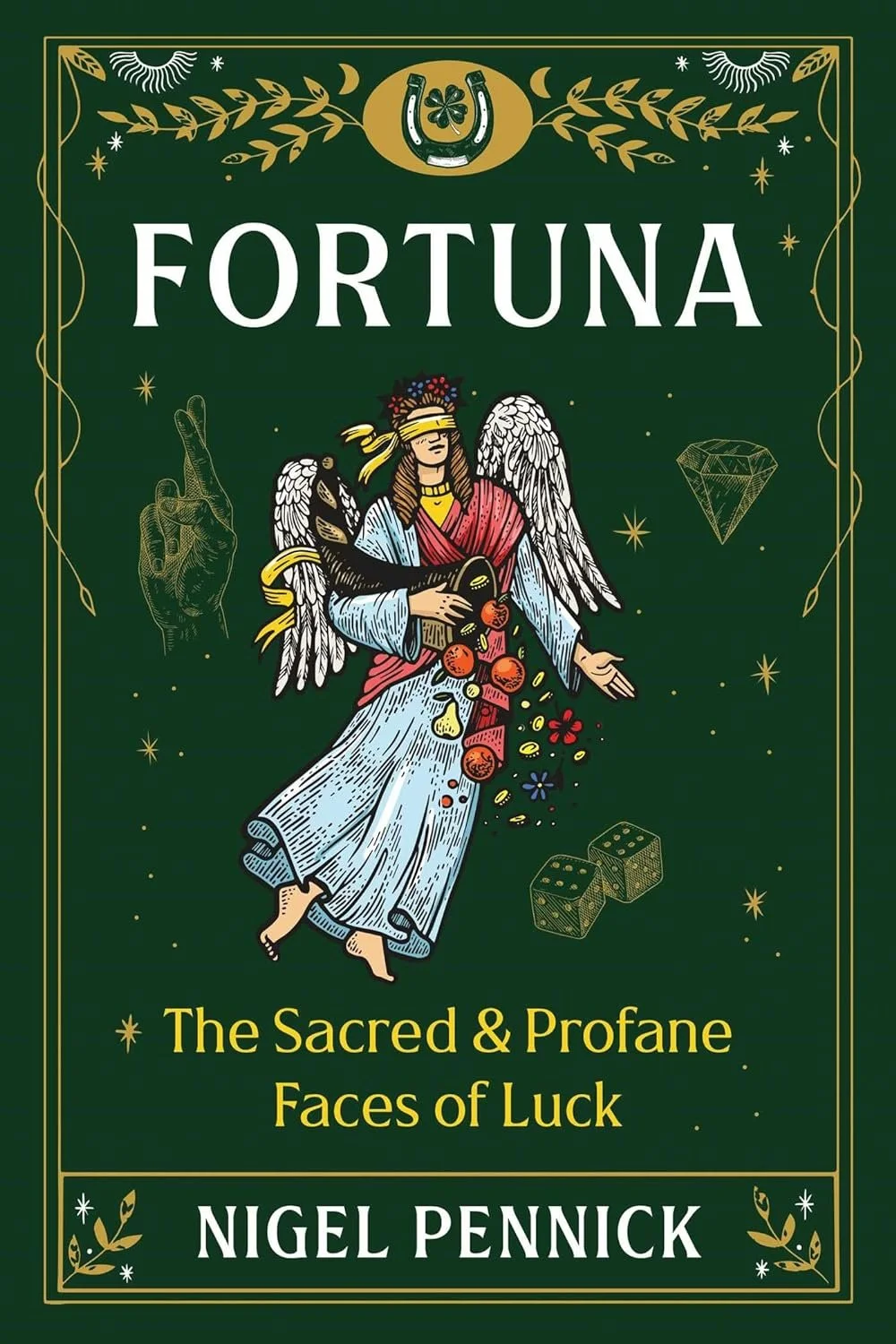The Roman Goddess Fortuna presides over fate and fortune. In Swedish she is called Fru Fortuna, i.e., Lady Luck in English since the 20th century.
“The goddess Fortuna was consulted in oracular shrines at Praeneste and Antium. The major shrine at Praeneste, now called Palestrina, had a magnificent temple that stood on top of a terraced holy mountain,” writes Nigel Pennick in this brief history of the culture of luck and gambling.
In America, luck is closely paired with fortune, and gamblers have frequently tried magical formulas to increase their odds at games of chance.
“One New Orleans practice is to burn a specially prepared Lady Luck vigil candle during the waxing of the moon, praying for what one wishes and reciting the 23rd plasm (usually associated with funerals),” writes Pennick.
While much of his book centers on luck and gambling, Pennick also discusses divination and oracles. He notes that the Praenestine Oracle, popular in France during the early 1800s, was used by a certain Charles Le Clerc to produce prophecies for Napoleon Bonaparte.
As the legend goes, Napoleon asked the Oracle, “What is the aspect of the seasons and what political changes are likely to take place?”
The Oracle is said to have responded: “A conqueror of noble mind and mighty power shall spring from low condition; he will break the chains of the oppressed and give liberty to the nations.”
Probably just what the future Emperor wanted to hear.

